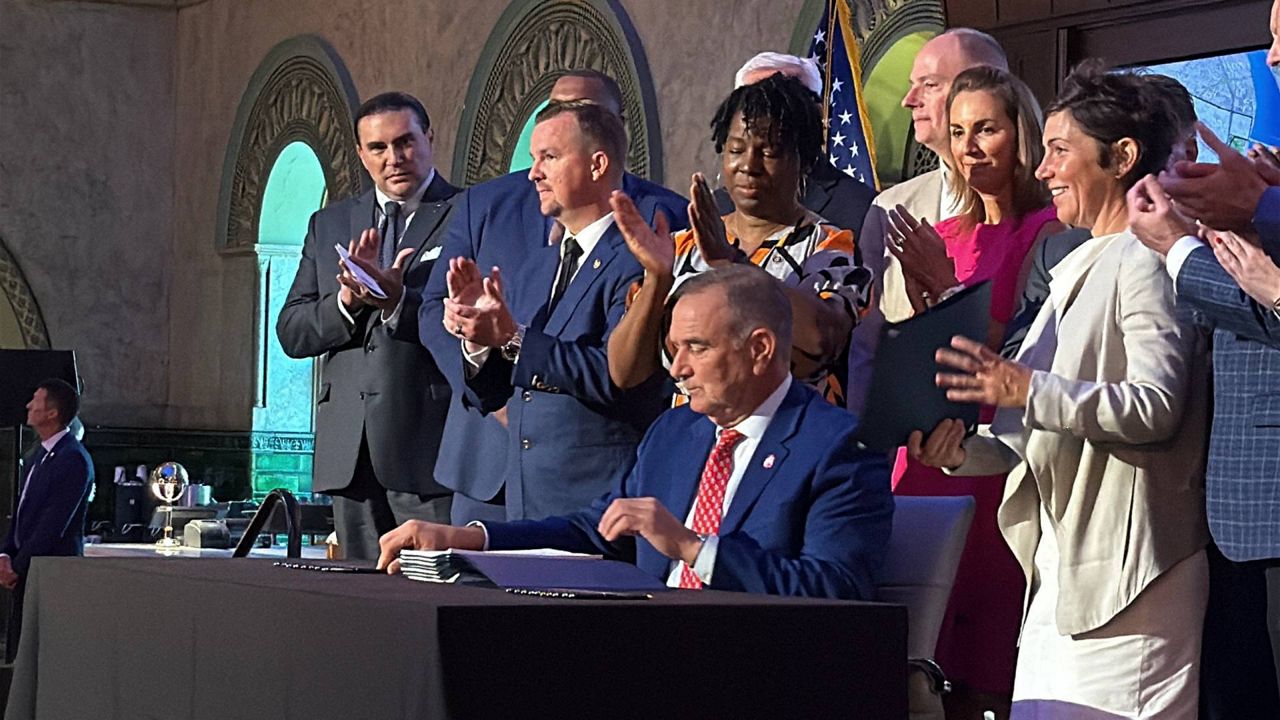WASHINGTON — As President Joe Biden and House Speaker Kevin McCarthy prepared Wednesday for a face-to-face meeting to start talks on spending cuts to prevent a debt limit crisis, a Missouri lawmaker introduced a bill that would take two major programs off the negotiating table.
Biden has refused to engage in direct negotiations over raising the nation's legal debt ceiling, warning against potentially throwing the economy into chaos. McCarthy all but invited himself to the White House, pushing to start the conversation before a summer debt deadline.
McCarthy arrives carrying no formal GOP budget proposal, but he is laden with the promises he made to far-right and other conservative Republican lawmakers during his difficult campaign to become House speaker. He vowed then to work to return federal spending to 2022 levels — an 8% reduction. He also promised to take steps to balance the budget within the decade — an ambitious, if politically unattainable goal.
The political and economic stakes are high for both leaders, who have a cordial relationship, and for the nation as they work to prevent a debt default. But expectations are low that this first meeting will yield early results.
Missouri Sen. Josh Hawley told Spectrum News he's pushing legislation called the Keep our Promises Act’ that would take cuts to Social Security and Medicare off the table when it comes to debt-ceiling negotiations moving forward.
“We should protect social security and medicare and not use it as a bargaining chip or as a pawn and let's end the scare tactics that you know both sides use. The Democrats say ‘Oh Republicans want to cut Social Security and Medicare. Some Republicans say ‘Ah maybe this’d be a good opportunity to dial back those programs and the people who have paid into them, dial back benefits for the people who’ve paid into them.’ I just couldn’t disagree with that more.”
His bill would let the U.S. Treasury issue as much additional debt as is necessary to fully fund the programs when the statutory debt limit is reached.
In the near term, Hawley instead suggested cuts to spending at the IRS and green energy programs.
McCarthy signaled over the weekend that he wouldn’t suggest cuts to Social Security and Medicare despite some interest from Republicans in doing so as part of larger belt-tightening.
Such mainstay programs, along with the Medicaid health care system, make up the bulk of federal spending and are politically difficult to cut, particularly with a growing population of those in need of services in congressional districts nationwide.
Treasury Secretary Janet Yellen notified Congress last month that the government was reaching the limit of its borrowing capacity, $31 trillion, with congressional approval needed to raise the ceiling to allow more debt to pay off the nation's already accrued bills. While Yellen was able to launch “extraordinary measures” to cover the bills temporarily, that funding is to run out in June.
Agreeing on the size and scope of the GOP's proposed cuts will be a tall order for McCarthy as he struggles to build consensus within his House Republican majority and bridge the divide between his conservative and far-right wings of the party.









